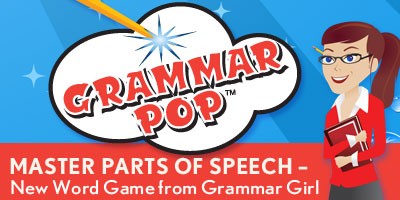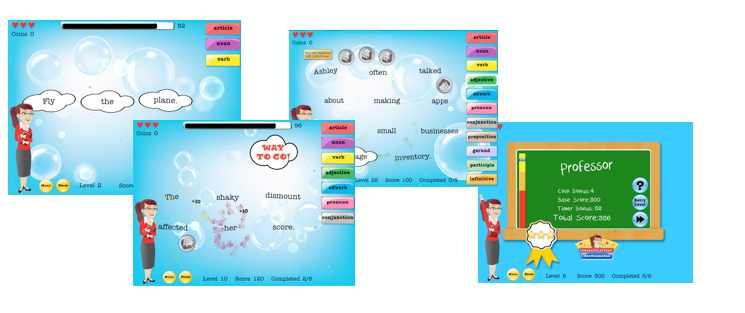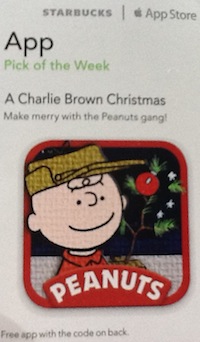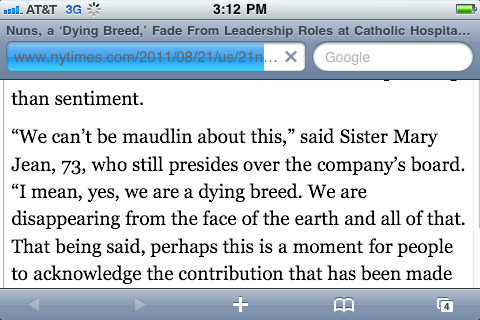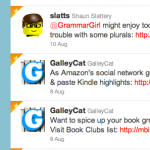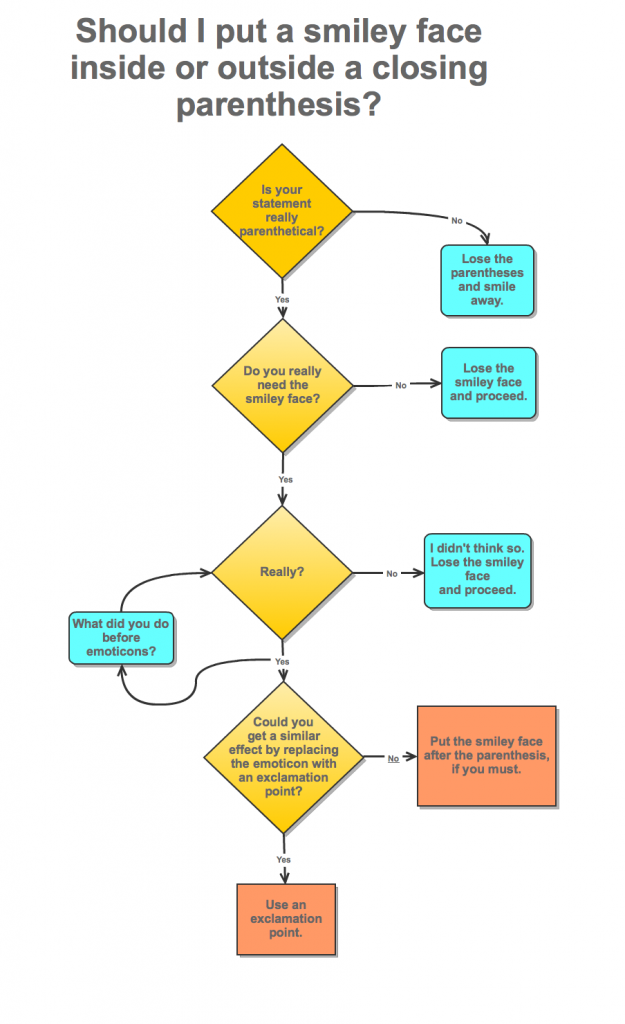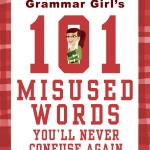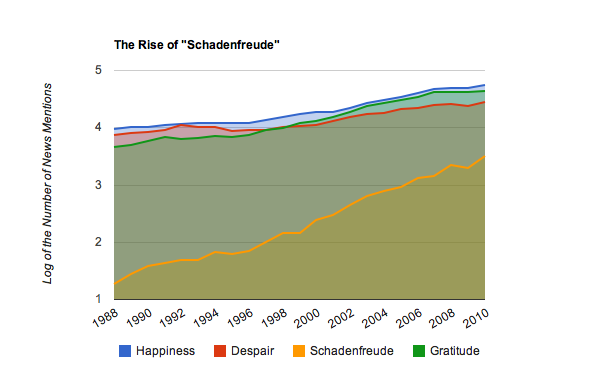Hello to anyone still reading this blog! “Where the heck has she been for more than a year?” you may ask. I’ve been making a word game—an iPad app—called Grammar Pop, and since I made the app myself, I had to learn to make apps, which took awhile.
It took longer than I thought it would, but it was still completely doable, and I’m here not only to tell you about my app, but also to share my excitement about a tool called GameSalad. Because of GameSalad, you can make apps too if you want to. Yes, YOU.
How GameSalad Works
GameSalad is a drag-and-drop tool for making apps (for many platforms), which means that although you need to learn some basic programming logic, you don’t have to learn a coding language. Instead, you combine intuitive commands such as “When the player makes a mistake, subtract 10 points from the score.”
The Community Makes It Possible
This post is subtitled “The Power of Community” because it’s the GameSalad community that truly makes this product shine. It reminds me of the early days of podcasting: Everyone hung out on the forums at Podcast Pickle and was happy to answer technical questions. GameSalad also has active forums with friendly people who are happy to answer technical questions. I’m not sure I could have made Grammar Pop without help from that community. It certainly would have been more frustrating.
Also like podcasting, a whole community of experts and consultants have sprung up around GameSalad. You can find hundreds of YouTube videos with tips about how to use the software. In fact, you can get quite far in developing a simple game just by piecing together the tips in these videos. If you would rather buy an affordable game template and customize it yourself, you can do that, and if you get stuck or just don’t want to spend the time searching for an answer, it’s easy to find an independent paid consultant.
During the past year, I’ve thought a lot about the difference a strong community can make in the success or failure of a technical product or even a whole industry. Without the support of a strong community, I doubt I would have started podcasting and I doubt I would be releasing an awesome game. The Grammar Girl Facebook page is also more vibrant and interesting because of the regular contributors, and a Superstars Writing Seminar I attended a few years ago continues to be valuable because of its thriving private writers community. Start-ups, take heed and foster your community!
You Can Make an App
Starting with no major coding experience and no experience at all making apps, it took me about a year to make Grammar Pop, but Grammar Pop is actually quite complex and about half of that year was spent just writing all the sentences and categorizing each word with its part of speech. If you wanted to make a simpler game or a tip-a-day app or perhaps an interactive e-book, I believe you could do it a lot faster.
You can start by downloading the free version of GameSalad Creator and following along with a few of the “Getting Started” videos in the GameSalad Cookbook at YouTube. I watched nearly all of the videos by a power-user called tshirtbooth (whose account has now been taken over by a GameSalad consulting company called GS Helper), and if you search YouTube for “Game Salad,” you’ll find many more videos.
And now, let me tell you about Grammar Pop.
All About Grammar Pop
Fun Is a Priority
It started as a game I wanted to play myself but couldn’t find. It’s a simple idea—match words with their parts of speech—but the existing iPad and iPhone games I found were far too simple and babyish for me. Making it fun was my first priority. That it is educational and lots of teachers loved it during beta testing was just a huge bonus.
Easy or Hard
The game starts simply with three-word sentences and three parts of speech, but it goes all the way up to 12-words sentences and 11 parts of speech. When you match a word with its part of speech, the cloud pops and makes a happy sound, and sometimes you reveal its silver lining which gives you coins that add to your score. At each level, you’re ranked as a professor, tutor, or student. You can play each level multiple times because the game has more than 14,000 words in the database.
Get the Whole Game Upfront
Deciding on a business model was tough. These days, lots of people are offering apps free but then loading them up with in-app purchases. I find those annoying and also have friends whose kids have racked up hundreds of dollars in in-app purchases, and we don’t want that! So for now, you get the whole robust game for a single $1.99 price up front.
Learn more at GrammarPop.com or go to the App Store and buy Grammar Pop today.

